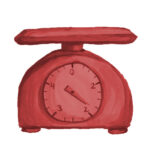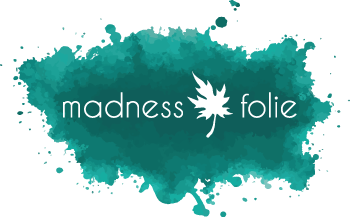 Component Exploration 1: “Cheers to Capitalism”
Component Exploration 1: “Cheers to Capitalism”
Timing: 30 Minutes
Mode: In-Class; Online
C.J. is a young Asian-Canadian woman. The first component presented is her poem “Cheers to Capitalism,” which is about the racial and gender stereotyping she has experienced in the workforce. The second component is an excerpted set of C.J.’s thoughts on her poem taken from interviews and and a focus group.
Work through this powerful material by reading and listening to and considering C.J.’s “Cheers to Capitalism” poem alongside a careful study of her focus group and interview excepts.
CONTENT WARNING: this poem and interview excerpts include explicit descriptions of mental distress.
CHEERS TO CAPITALISM by C.J.
You invited a perfect porcelain doll to your tea party
I was your cherished collectible,
molded into everything you wanted me to be
You locked me behind porcelain,
characterizing me as your timid masterpiece
But honey you missed the cracks
Sorry to disappoint, but I ain’t flawless
The hairline cracks are becoming crevasses
decorated by tear stains
I smell burning flesh
angry red streaks across my skin
my pain is etched into my flesh
Tattoos appear, marking me for my sins
They yanked at my throat
My body thrashed in desperation
My body slumped into submission
They tied me down,
shackled my holy grail with metal
cold operating table
Ice jolts my body back to reality
They gave empty promises to fix me,
A razor sharp butcher knife grazes my skin and makes a cut,
where my heart used to be
Life and work blurs and warps into an alternate world
Guess I should accept my invitation to Wonderland
And drink tea with the man
I raise my tea cup to gan bei
But ceramic clinks against a lifeless mirror
The madness in me materializes
This was my tea party…
The walls fall and I’m already in Wonderland
I guess the price I’m willing to pay is expensive
This corporate world has brainwashed me
Given me more stockholm syndrome than all my abusive exes
Shackled me down, I don’t think I’ll ever be free
Every inch of my body is covered with words and expectations
I never asked to be your willing slave
Highest bidder wins my days
365, 24 hours in a day
Tighten the noose around my neck
Feet flailing above pedestal
I can’t breathe
(gasp)
Unwilling hand on pen
Signing a contract they never let me see
At night my eyes flutter close
Nightmares haunt each breath
I imagine my body being ripped to shreds
Strings wrap each limb and pull
They piece me back together
But there’s cold metal
I feel lasers behind my eye
My limbs are programmed to move at your command
And I realize I’m no longer human
You’ve built me into a bionic plaything
A machine in your domination plan
Lost my humanity
I can’t breathe
(gasp)
The girl I used to be
A developing photo sun-exposed
A memory
Some ashes blown across a vast sea
I’m disappearing completely
But they promised me
Let’s keep dancing the masquerade dance
Serenade me into submission
Marry the night again and again
Let’s go, stockholm syndrome round 3
Nothing remains
Even my shadow doesn’t recognize me
I don’t see a version of this contract or story where I
(gasp) breath
…
…
…
Taunt lips, heart strung, carcass laid out to breathe
War-torn body
Scarlett tears drip,
Out drains what’s left of me
Lifeless cold
Finally laid down to rest
I guess now that I’ve left
(breath) I finally get the chance
(breath) I can breathe again.
CJ participated in a project focus group with other young, racialized artists who were contributing art to Mad School. Here, she describes her creative process in writing poetry.
It’s a lot of like here’s my brain here’s like what I’m feeling. And then, like it’s a throw up everything, emotions and, all things ugly on a piece of paper. Usually in the notebook for and then like I have like a bunch of like separate thoughts and little like things up and playing with, then on the computer like, type it out again and, like refine it so that’s kind of my process yeah.
Um, this poem kind of mirrors like real life, you think things are going fine and then suddenly it clicks for you like oh like I’m the mad hatter like, all of this is like way too real and then, like all of that being like, oh no. And that guess I also kind of mirrors getting quicker and like but gasps and stuff being like oh no like, like just the mind racing.
Being part of a project focus group of young racialized artists who identified as having mental health differences gave CJ an opportunity to consider her emotional self.
CJ (she/they): I can tell that there’s like a lot of like strong emotions within me that doesn’t mean they’re being solved or whatever, but like the realization is interesting because I definitely didn’t realize how intense those feelings were until the study.
In an interview conducted as part of this project, CJ articulated aspects of her experience of being an Asian woman in the Canadian workplace and how this can impinge on her mental wellbeing.
CJ (she/her): I think, it’s just kind of the idea of what an Asian woman is in the workplace and just kind of women and like being fragile a lot of it, like, for me the porcelain doll. Like, I’m thinking like a Chinese porcelain doll, like cherished and like perfect, but you know, like, that’s not how humans are. I also talk about like the gan bei (like ‘cheers’ in English when drinking) and that kind of brings it in, how you know, some words in the Western society will never be able to allow us to express who we are and it’s kind of also just like feeling a little lost in a society that’s, you know, When you’re two pieces of two places and you don’t really fit into either perfectly.
I think there’s part of that, um there’s also the idea of having to be on the go, go, go, all the time and even when you can’t breathe in your gasping for breath you still just have to keep pushing through. And kind of the expectations of like society versus self-expectations and all of that, I think those are kind of themes. And then also kind of the idea that certain like traumas stick with you, and like, even when they’re not the main topic they kind of come up again, just kind of interesting, kind of depressing, kind of all of the above. yeah, and also just kind of how the corporate world can be quite cold.
Later in the same interview, CJ reflects on what a therapist should attend to and muses on the place of memory in mediating the past.
CJ (she/her): It’s kind of like a therapy thing in itself, is just kind of thinking about how a therapist should reflect, what are your self-expectations, what were your expectations coming from? Are they coming from your culture? Like, are you a minority and have you been taught certain things? Is there generational scars and traumas that you kind of encompass whether you realize it or not? Um what kind of expectations are there in society? And how about, like traumas and expectations from your family members and your loved ones? And like even they’re coming from a good place, like are they good for you?
Because I think, that’s a lot of what’s here like there’s a lot of expectations from the corporate world that I have to deal with, there’s expectations of being someone who’s Chinese, there’s expectations of being a woman, Like I think you’ve seen the whole thing where it’s like, “Oh, if a guy is like bossy then they’re a boss and they’re great, but if a woman is bossy it’s seen as a bad thing”, so like a lot of balancing of what that is.
And then also kind of being, like, imperfections are okay, I guess, because I say, like the girl I used to be a developing photo, sun exposed, don’t know if that’s correct, but in my memory reading stuff, like that is, like if a photo is like exposed to the sun, then it’s ruined. Is that true? Like, is it really gone? You still have the memories of the image, you still have the beauty and like you remember it and, like as a photo really representative of everything that’s happened? And is one mistake going to end it all?


 Français
Français